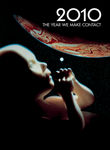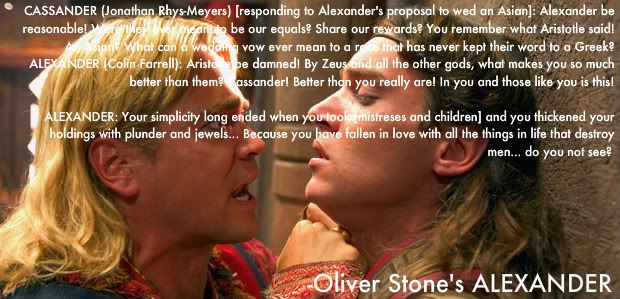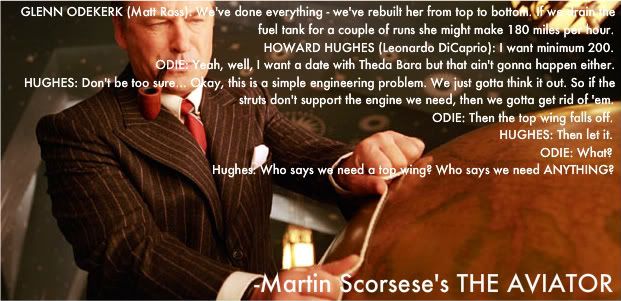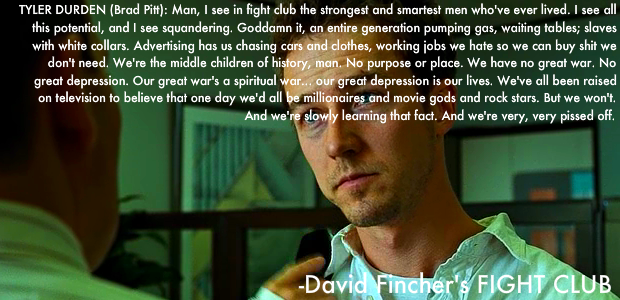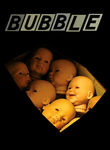There are a few of my favorite films that I have not officially reviewed because I never felt I could do them justice. Well, that and I am not typically in the habit of reviewing films that I haven't just seen for the first time. I feel now that finally, after nearly two years of loving it as my favorite film, I can give this the review it deserves. And yes, there will be
SPOILERS abound, so reader beware.
It was December 14th, 2001. I was sixteen years old, and I had just seen The Royal Tenenbaums opening day at the Sunset AMC in Miami. As I was leaving, I saw a poster behind a standing display in the center of the lobby for another film that had just came out that very day. The artwork on show was the now highly recognizable shot of Tom Cruise against a background of beautiful blue sky, with the most interesting tagline below... "LoveHateDreamsLifeWorkPlayFriendshipSex." For some reason, a reason I still cannot quite pinpoint today, I was completely drawn in, and even before seeing the film itself I already felt a deep, personal connection to it. That poster never left my mind... but for some reason, maybe too much dreaming, I never went to see Vanilla Sky in theaters.
Two years later it was December again. I was 18 and working my probationary period at the Baptist Hospital in Miami for the environmental department, waiting to be promoted to audio/visual. My hours were 2:00 PM to 11:00 PM on Fridays, Saturdays and Sundays, which left little time for anything but sleep inbetween. I happened to wake up relatively early one morning and catch a scene from an unknown film on HBO. There was a man in a nightclub with a familiar voice... he was wearing a pale mask and making funny gestures at Jason Lee, who was calling him an asshole. I was immediately drawn in, but alas, it was later than I had thought and I needed to run to work... yet again Vanilla Sky had evaded me, but it would be the last time.
Finally... March 8th, 2004. I was in my third month at what turned out to be a horrible excuse for a college, Full Sail, and I had started my downward spiral into the depressed shut-in that everything surrounding that schooling experience temporarily turned me into. I decided to cure my sorrows with my feel-good drug, DVDs. While perousing the shelves at Best Buy I came across a very good price for a very familiar looking film. After making it back to my apartment, I immediately doused the lights and put the disc in my player. For the next two hours I was on a proverbial roller coaster into a whirlpool of emotion that left me in wonderment, left me in euphoria and left me in tears. For some reason, yet another unrecognizable reason similar to my draw into the poster, I could see myself entirely in Tom Cruise's character, David Aames. Maybe it was because at the time, he was a lot like who I wanted to become. Maybe it was because Penelope Cruz' character, Sofia Serano, was a lot like the kind of girl I wanted to mutually fall in love with someday. Hell, maybe it was because it was just an incredibly involving film... however it worked, it was the most personal experience I've ever had watching a film (Magnolia being a distant second, but definitely up there,) and I could never foresee it being topped.
Vanilla Sky opens with what is one of the greatest scenes ever set to film, the hero of the story who relies on a plethora of yes-men and yes-oh-yes-women to verify his reality finds himself in one of the busiest places on earth, Times Square, New York City... but it is desolate... abandoned. The advertisements all around taunt him as he runs, scared, with promises of a better life. He soon awakes, however, to find that it was but a dream... a heavy theme that will recur throughout the film.
We follow David Aames through several days that involve talking with his best friend, Brian (Jason Lee,) the only person who tells him the truth, throwing a birthday gala for himself and ultimately meeting Sofia (Penelope Cruz,) the woman with whom a love will blossom overnight, and the woman who will change his life in a million different ways. There are so many nuances thrown in to the film during all of these scenes, some of them are of the kind that don't necessarily enhance the film's meaning, but really flesh it out as a whole experience, and others that exist as highly quotable, meaningful additions to the piece. As we continue to watch, David gets himself into a situation devestating to his character... detrimental to his reputation, yet also a huge reality check.
David is catapulted into a living dream, so it would seem... though he has no idea how true that assessment is - his "reality" check is torn asunder and replaced with confusion. Neither he nor we can tell what is real and what is not, and for a long time we are confused but captivated as to what could possibly be the truth of the situation. After seeing the movie once through and going through again, the experience is even more powerful. Most of story is framed by therapy sessions between David and Dr. McCabe (Kurt Russell,) who starts out as a psychiatrist hired by a court to investigate David's inner workings, but ends up being a great father figure to him.
Once everything came together in my first viewing, I was left with an unexplainable feeling that seemed like a mesh of love-sickness and inspiration. Everything from David's courage and his realization of what has become his reality and why to his last looks between the lovers who share the strongest spontaneous bond... I was right there, I was with them.
As for the technical aspects, Cameron Crowe directs with such a wonferful eye for beauty that is aided magnificently by his director of photography, John Toll, who captures it in an eternal scope. The film flows as if it were itself the best of dreams. The cast, members of which not already mentioned include the highly talented likes of Cameron Diaz, Tilda Swinton, Noah Taylor and Timothy Spall, does a spectacular job of portraying their characters and bringing the story to full life.
In 1997 Alejandro Amenabar wrote and directed Abres Los Ojos, also starring Penelope Cruz. That is where the original idea for Vanilla Sky came from. As Cameron Crowe states in the short documentary, Prelude to a Dream, which is perfectly placed before the "Play Film" selection on the Vanilla Sky DVD because it works as a great introduction to the film, he felt like when he watched Abres Los Ojos, he was involved in a beautiful conversation, and he wanted to be part of that conversation. To me the films are very individual pieces, and I happen to like the Crowe version much more.
This is such a thoughtful and well made film - everything means something on a hugely deep level - watching the film captivates me, listening to any song from the soundtrack sends me reeling into emotion and even writing this review is an extremely meaningful and emotional experience to me. I have trouble not regurgitating every quote from every scene because I am so enthusiastic about how amazing it all really is. Even these words like "enthusiastic" and "amazing" feel like monsterous understatements. I suppose I cannot at this moment find the proper words to describe the depth to which the film reaches within me, but I also know that I don't have to find them. I feel now like everything has come full circle with my journey through Vanilla Sky, though the aftermath will be forever ongoing.






